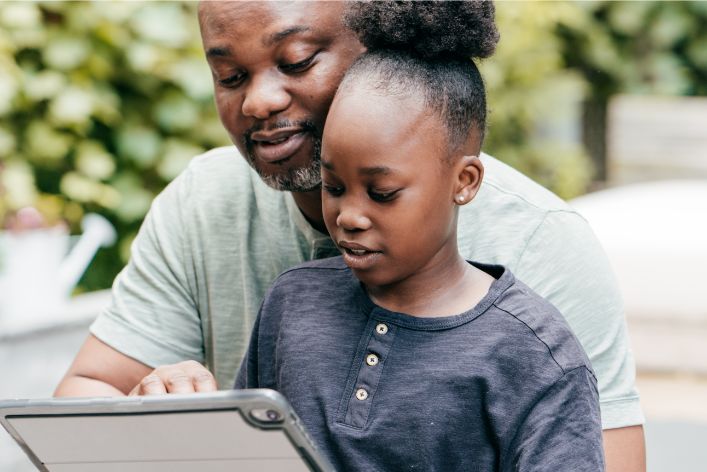Introduction
Education is a crucial element for the progress and development of any country.
In Nigeria, addressing education hurdles is essential for the growth of the nation. Unfortunately, Nigerian parents face several challenges in providing their children with a quality education.
These obstacles include inadequate school facilities, poor infrastructure, lack of access to educational resources, and limited financial means.
Furthermore, illiteracy among parents, cultural beliefs, and societal pressures also pose significant barriers to educational advancement.
These challenges contribute to a high rate of school dropouts, illiteracy, and poor academic performance.
Breaking the cycle of poverty and creating a better future requires prioritizing education for Nigerian children.
Addressing hurdles faced by parents in providing quality education is crucial.
Equipping children with skills and knowledge empowers them to become productive citizens and contributes to the country’s progress.
Improving Nigeria’s education system demands a collective effort from the government, parents, and education stakeholders.
Read: Cooking Nigerian Dishes with Kids: Fun & Learning
First Hurdle: Lack of Access to Quality Education
Nigeria has been struggling with the scarcity of quality schools for years. Unfortunately, the limited availability of good schools in Nigeria is a major obstacle for parents who dream of providing their children with a sound education.
One of the consequences of poorly educated children is a low literacy rate, which has a destructive impact on the economy.
In addition, a lack of qualified professionals perpetuates the problem, preventing the nation from reaching its full potential.
To increase the number of quality schools in Nigeria, there are several possible solutions. These solutions include:
1. Encourage private sector involvement
The government can stimulate private sector involvement to invest in education, which would lead to the establishment of more schools.
Parenting Made Just for You
Get personalized Parenting Solutions tailored to your child’s needs. Transform your parenting journey with expert guidance in 1-3 days.
Get StartedPrivate investment can help to bridge the gap between the limited availability of good schools and the rising demand for quality education.
2. Public-private partnerships
Public-private partnerships can be set up between the government and the private sector to build more quality schools.
This would enable the government to leverage the expertise and resources of the private sector to improve the quality of education.
3. Adopting technology
Technology can be incorporated into the educational system to increase the efficiency of the teaching and learning process.
With the use of online learning platforms, lectures and educational information can be shared from anywhere in the world.
4. Government funding
The government should allocate more funds to education to support the establishment of quality schools and incentivize private investors to invest in education.
With adequate funding, more schools can be built and equipped, and training programs can be established for teachers.
5. Teacher training programs
The establishment of teacher training programs can improve the quality of education in Nigeria.
These programs can focus on equipping teachers with the necessary skills and knowledge to provide quality education to students.
Most importantly, Nigeria needs to address the hurdle of limited availability of good schools to provide quality education for children.
The government, private sector, and other organizations should work together to improve the quality of education in Nigeria.
If done correctly, the nation will have a well-educated population that will help to grow the economy and lift its people out of poverty.
Read: Single Parenthood Struggles in the Nigerian Context
Second Hurdle: Financial Constraints
One of the major hurdles that Nigerian parents face when it comes to providing education for their children is financial constraints.
Unveil the Perfect Name that Tells Your Family's Story
Let us help you find a name that embodies your family's values, traditions, and dreams. Our personalized consultation weaves cultural insights to create a name that's uniquely yours.
Get StartedMany parents struggle to afford the high cost of education, which can significantly impact their children’s academic journey.
The gap in socio-economic status is also a significant factor that affects education in Nigeria.
Those from affluent families can easily afford quality education, while those from low-income households struggle to provide even the basic necessities for their children.
What are the possible solutions to reduce the financial burden on parents?
Here are some guidelines:
- Government intervention: The government can provide free or subsidized education, especially at the primary and secondary levels, to reduce the cost of education on parents across the country.
- Donations and scholarships: Several organizations and individuals can help raise funds and provide scholarships that can help Nigerian parents afford the cost of education.
- Expansion of microfinance banks: Microfinance banks that provide soft loans to individuals can help Nigerian parents afford education fees for their children by reducing financial constraints.
- Collaboration between schools and parents: Schools can collaborate with parents to provide various payment plans, flexible fee structures, and other incentives that can ensure parents can afford education costs.
It is vital to recognize that education is essential for the growth of any country, and Nigerian parents should not have to face financial constraints that limit their children’s academic journey.
The government, private organizations, and individuals must come together to address this hurdle that impedes access to education.
Read: Hosting Parties for Nigerian-Themed Children: A How-to
Third Hurdle: Language Barrier
Nigeria has an incredibly complex linguistic landscape that features over 500 languages, with English being the official language used in schools and business.
This presents a significant challenge for parents whose children’s first language is not English.
Parents face difficulties tackling the language barrier when communicating with teachers, navigating school systems, and helping their children with homework.
They struggle to understand instructions, interpret report cards, and monitor the academic progress of their children.
Beyond language difficulties, children who speak a different language at home than what is used in school experience a lag in their academic development.
They tend to fall behind in subjects like English, Mathematics, and Science. Language barriers also affect social integration, leading to feelings of isolation and a lack of interest in school.
Possible solutions to support bilingual education and reduce linguistic barriers.
There are possible solutions to support bilingual education and reduce linguistic barriers.
An English as a Second Language (ESL) program can be integrated to provide students with support and resources for learning English and catching up with their peers.
Parents can partner with schools to understand the curriculum, seek additional resources, and participate in parent-teacher meetings.
They can also expose their children to the English language through reading, watching shows, and conversing in English at home.
This will increase their exposure to the language and make it easier for them to understand and learn in school.
It is essential to address the language barrier so that every child in Nigeria has access to quality education.
Schools and parents must work together to provide a supportive environment for bilingual education and facilitate language learning for students who speak different languages.
We must also recognize the potential benefits of multilingualism and encourage the development and preservation of Nigeria’s diverse languages
Promoting multilingualism can lead to increased cultural diversity, empathy, and understanding and have a positive impact on society as a whole.
What’s More
The language barrier is a significant hurdle that Nigerian parents and their children face in education.
It is crucial to address this issue by creating supportive environments for bilingual education and incorporating resources that facilitate language learning.
Parents also play a vital role in exposing their children to the English language and partnering with schools to support their child’s academic progress.
As Nigeria continues to strive for progress and development, language plays a crucial role in achieving these goals.
Therefore, we must recognize and celebrate the diversity of Nigeria’s languages while fostering multilingualism and reducing linguistic barriers to support quality education for all children.
Read: Unforgettable Family Road Trips Around Nigeria

Fourth Hurdle: Limited Access to Technology and Online Learning
Access to technology and online learning has become increasingly important in today’s world. Unfortunately, in Nigeria, limited access to technology presents a significant hurdle in providing quality education for Nigerian parents and children.
According to the World Development Report 2018, only 53.0% of Nigerians have access to the internet.
This means that almost half of the population, including many parents and their children, do not have access to the resources that technology and online learning provide.
The COVID-19 pandemic further highlighted the challenges of accessing online learning in Nigeria. With the closure of schools, many parents and their children struggled to keep up with education due to limited access to technology and the internet.
This situation only reinforces the need to address the issue of limited access to technology and online learning in Nigeria.
The importance of digital literacy cannot be understated in today’s world. Digital literacy involves an individual’s ability to use digital technology, communication tools, and networks to access, manage, and evaluate information effectively.
It is a crucial skill that can help individuals thrive in the current digital age.
Possible Solutions to Provide More Access to Technology and Online Learning in Nigeria
1. Government Intervention:
The Nigerian government has a significant role to play in ensuring that more people have access to technology.
They can increase investment in infrastructure, such as telecommunication networks and electricity. Policies can also be implemented to provide tax incentives for companies that provide affordable technology services to rural areas.
2. Public-Private Partnerships:
Collaboration between the government and private sector stakeholders can help address the issue of limited access to technology.
Companies in the telecommunications sector can partner with the government to provide affordable internet services in rural areas. This could also involve the provision of Wi-Fi hotspots in remote locations.
3. Community Initiatives:
Community-based organizations can play a vital role in providing access to technology and online learning.
For example, local libraries can provide free internet access and computer facilities for members of the community. Other community initiatives could include the provision of low-cost devices, such as tablets or smartphones, for families in need.
4. Donations and Grants:
Non-governmental organizations and international donors can provide support for initiatives aimed at increasing access to technology and online learning.
Private sector organizations can also contribute to corporate social responsibility projects that focus on providing technology resources and training for communities in need.
Basically, access to technology and online learning is crucial for parents and their children in Nigeria to overcome education hurdles.
Addressing the challenge of limited access to technology requires collaborative efforts from both the government and private sector stakeholders.
Community-based initiatives, alongside donations and grants, can also play a significant role in providing technology resources for underprivileged families.
By taking these steps, Nigeria can move towards providing inclusive and quality education for all.
Discover More: Healthcare Access: A Daunting Task for Parents in Nigeria
Conclusion
Education in Nigeria has always been a challenge for parents, with many hurdles to cross in their quest for quality education.
From the lack of funding for public schools to the high cost of private education, access to quality education seems like an impossible dream for many parents.
Coupled with this is the inadequate infrastructure, rundown facilities, and shortage of qualified teachers that plague the education sector
Nevertheless, these challenges cannot be ignored, as they have far-reaching effects on the overall development of the country and its future.
It is imperative for stakeholders in the education sector to take proactive steps towards addressing these challenges.
In doing so, the government needs to increase funding for public schools, provide better infrastructure, and equip teachers with the necessary tools to deliver quality education.
There should also be policies in place to regulate and monitor private schools to ensure they maintain standard and affordability.
Parents, on the other hand, need to educate themselves on the available options for their children’s education and become more involved in their schooling processes.
They should also demand transparency and accountability from government officials and school administrators whenever necessary.
Lastly, addressing the hurdles faced by Nigerian parents in education requires the collective efforts of everyone involved in the education sector.
By working towards a better education system, we are investing in the future of Nigeria and empowering our children to reach their full potentials.




